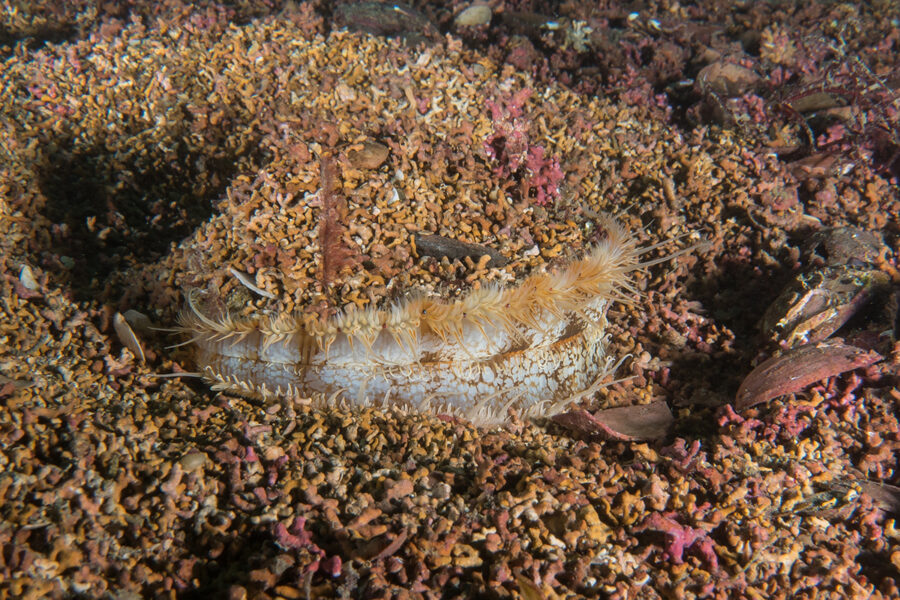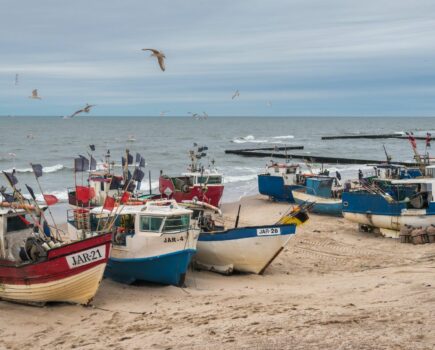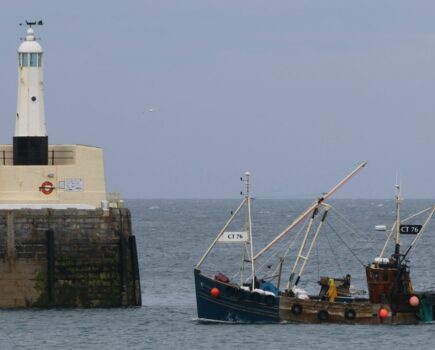The environmental campaign group Open Seas has launched a bid in the Scottish courts to force Marine Scotland to rethink the licences it issues for scalloping in Scottish waters.
The licence variations issued by Marine Scotland to vessels with a scallop entitlement, the Court was told, are resulting in significant harm to specific seabed habitats that the Scottish government has a duty to protect.
Outside the court before the hearing started, Open Seas director Phil Taylor said the challenge is being made as ministers are required by law to make decisions in accordance with the National Marine Plan, which states that any activities in Scotland’s seas must ‘not result in significant impact on the national status of priority marine features’ – the habitats and species that are a priority for conservation in Scottish seas.
Asking for a full judicial review of the legality of licences being issued, lawyers for the NGO told the judge that a licence variation to allow scallop dredging is unlawful where this causes damage to designated marine habitats.
Open Seas, the court heard, had used underwater cameras to directly monitor and measure the damage caused by scallop dredging to these habitats, after discussions with Marine Scotland for several years, during which time no action had been taken to protect them. Marine Scotland, said the NGO, had a legal duty to protect these habitats, and as a minimum must consider and explain the impacts of scallop dredging that they issue licences for.
In response to the action, legal representatives on behalf of Marine Scotland argued that specific habitat protection was provided through the use of appropriate statutory instruments.
VMS and other data suggests that a maximum of 16% of the Scottish seabed has ever been accessed by scallop dredges.
Thirty percent of Scottish waters are also designated or protected in some way. This includes an area of 4,753km2 in inshore waters, equivalent to 5% of waters out to 12nm and 13% of waters in the inshore MPA network itself where dredging is banned.
However, the NGO argues that this fails to recognise the designated habitats that licence variations issued by Marine Scotland allow to be damaged.
In a statement released after the hearing, Open Seas said: “We have been in lengthy correspondence with the Scottish government on this issue over many years, but it has failed to take action. It is for this reason we have felt compelled to progress the issue in court.
“Our case is simple – that the Scottish government has a legal duty when making decisions to consider the impacts on marine habitats. By the Scottish government’s own admission, they are not doing this when making fishing licensing decisions. We think this is unlawful, and now await a decision from the judge.”
Elspeth Macdonald, chief executive of the SFF, which has no involvement in the case, said: “The industry is committed to preserving marine features that may be at risk, but opposes draconian blanket measures, and calls for a pragmatic approach that supports conservation whilst enabling sustainable use.
“This is an obstacle to creating constructive dialogue between parties, and damages mature discussion about co- management.”
Marine Scotland, which defended the action with a large team of 16 present in court, had not issued a statement as FN went to press.
A ruling on the one-day hearing, which in legal terms was a petition for a judicial review, is not expected for several months. A successful outcome for the petition could then lead to further lengthy legal proceedings.
This story was taken from the latest issue of Fishing News. For more up-to-date and in-depth reports on the UK and Irish commercial fishing sector, subscribe to Fishing News here or buy the latest single issue for just £3.30 here.
Sign up to Fishing News’ FREE e-newsletter here.








